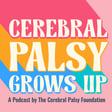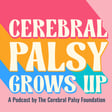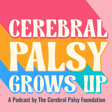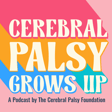
Episode 1: Robyn Lambird
In our first episode, we sit down with Robyn Lambird, Australian Paralympian and trailblazing advocate for disability rights and LGBTQ+ inclusion. Robyn made history at the Tokyo 2020 Paralympics as the first non-binary athlete to win a medal, securing bronze in the 100m T34 race. But their journey goes far beyond the track.
The Paralympics highlight not only the incredible achievements of elite athletes but also the importance of physical activity for everyone, including those with cerebral palsy or other disabilities. Robyn shares how elite sports and everyday recreation are interconnected, emphasizing that engaging in physical activity, at any level, fosters confidence, independence, and a deeper understanding of one’s body. Whether competing on the world stage or simply finding joy in movement, athletes with disabilities, like Robyn, inspire us to explore our limits and prioritize health and wellness.
In this debut episode, Robyn discusses the valuable lessons learned through sport about fitness, mental wellness, and mobility that apply to both elite athletes and those engaging in recreational activities. Tune in to discover how sports and recreation build resilience, improve quality of life, and foster inclusivity in all aspects of society.
Follow
Robyn on Instagram: @robynlambird
Cerebral Palsy Foundation on Instagram: @yourcpf
CPGU on Instagram: @cerebralpalsygrowsup
Alexa Orban on Instagram @lexi_orban
Credits
Host: Alexa Orban
Producers: Katy Gaastra, Kyle Khachadurian
Executive Producer: Ashley Harris Whaley, Rachel Byrne
Graphics: Briana Raucci



